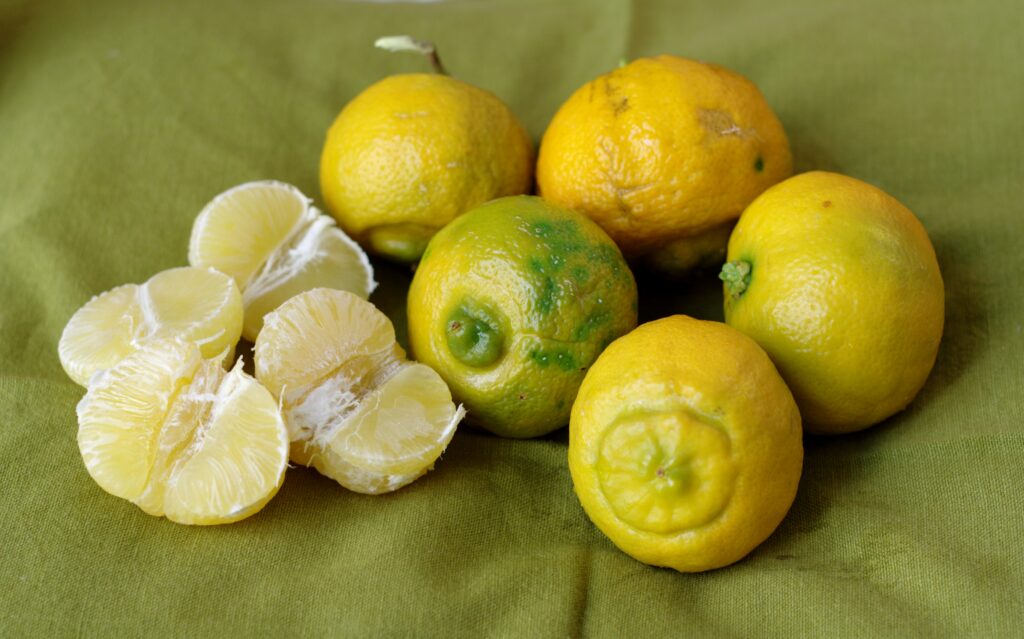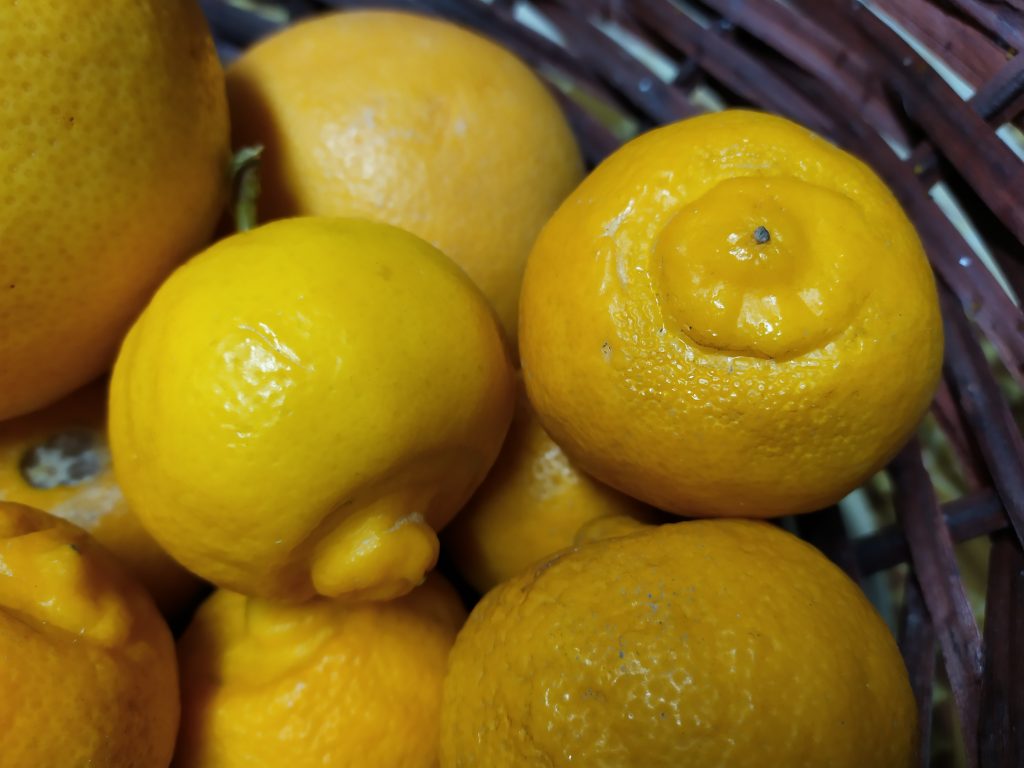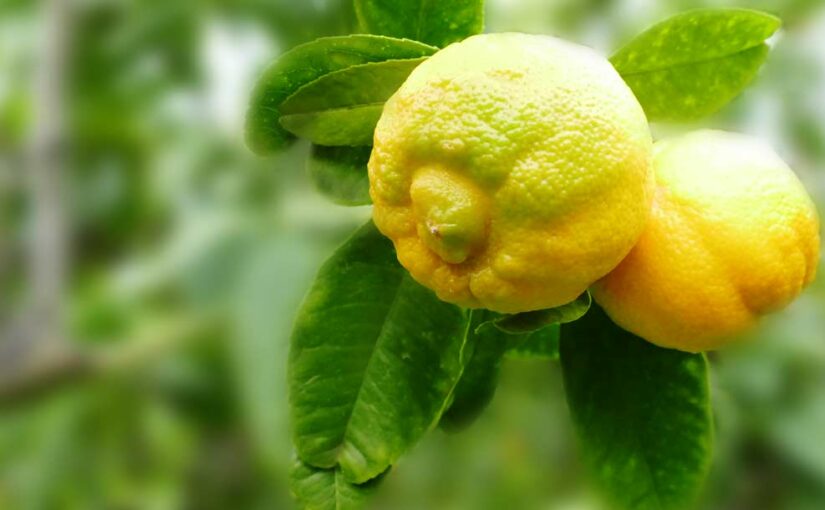12.03.2022
“Limon Calaber fructu minima rotundo angustioribus et brevioribus foliis”: this is how in 1726 Paolo Bartolomeo Clarici identified the Calabrian round lemon by describing its characteristics.
Lime (Citrus limetta) is a citrus fruit characterized by a very delicate scent and a yellow-green skin, with a sweetish or slightly acidic and not very savory pulp, and is another of the Protected (Traditional) Agri-food Products of Calabria (PAT).
The variety grown in the upper Ionian coast of Cosenza is Citrus limetta umbilicata hispanica or Spanish limo.

The fruit stands out for being small and round, with an umbo, almost completely surrounded by a deep groove.
Dialectally called piretta, it has been cultivated for centuries in the Piana di Sibari, where it has found an ideal climate for its adaptation.
It is also known by the name of Calabrian limoncello or Calabrian lime, used a lot in the preparation of liqueurs and cocktails.
It has an intense aroma, rich in essential oils, with a fine peel; details that give it excellent organoleptic qualities and that make it one of the products of excellence of its kind. According to some, it is a hybrid between cedar and another citrus fruit that is not better defined.

The origin and history of Citrus limetta or lima dulcis (as Giovanni Battista Ferrari defined it at the end of 1500, in his work “Hesperides”), are very fragmentary and little is known about its past.
It almost certainly spread from India (where different varieties of sweet limes are still grown today, called in Hindi musambi or mosambi, with which sweet and refreshing juices are made) to Asia Minor, Egypt and other countries of the Mediterranean basin, in which it has been present for many centuries.
It forms small trees or large erect, branched and thorny bushes, its flowers are white and fragrant, single or in inflorescence, and are produced from spring to autumn.

SMAF LTD
Explore our products, coming from CALABRIA. Order the food and beverage products that allow you to explore the Mediterranean diet of a remarkable region. Surrounded by two seas and adorned with pine forests, mysterious villages, natural habitats, and rich biodiversity. Discover handcrafted delicacies that embody the soul of the land: sun-ripened fruits, premium olive oils, bold wines, artisanal cheeses, and traditional cured meats, all crafted with passion and authenticity.
Among the sweet citrus fruits it is the least known, but it is sought after by connoisseurs who appreciate both the beauty and the goodness and taste of this fruit. As with most citrus fruits, sweet limes are rich in vitamin C and potassium, and are used to fight the flu and colds.

Their juice is rich in substances that stimulate the digestive system by helping the stomach to regulate gastric juices, and this is why in Calabria, with its rinds, an excellent piretta liqueur is made for the end of a meal.
This juice with a pinch of salt is also useful against constipation and nausea.
It also increases appetite, purifies the blood, is highly thirst-quenching and cools the body.
In India, it is one of the most consumed among citrus juices, and in oriental cuisine it is also used to marinate meat (as it enhances its flavor without contrasting it with the acidity that other citrus fruits have) and to dress salads.Finally, it is used in the food industry for the production of soft drinks, jams and sorbets.

This citrus fruit is particularly cultivated to obtain the essential oil from its peel.
The essence, very fragrant and similar to that of lemon but more delicate, is appreciated by the perfume industry to create unusual perfumes, detergents and refined deodorants.
Calabrian limetta citrus: another small but great fruit made in Calabria, to discover and taste!

